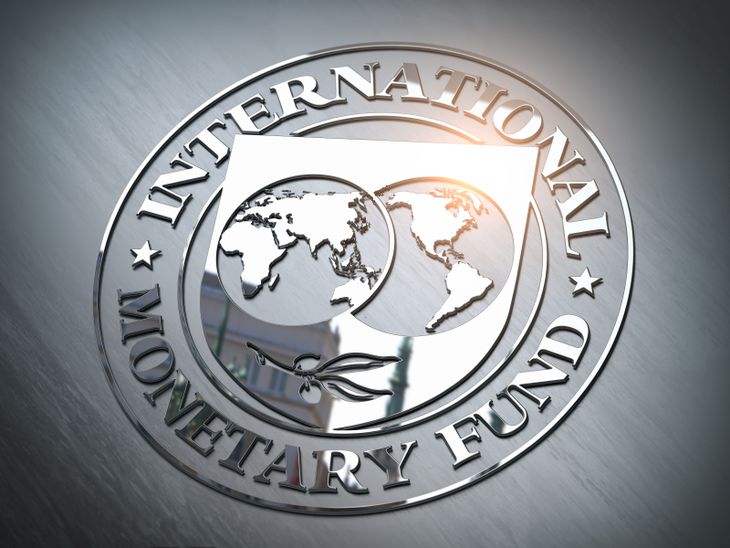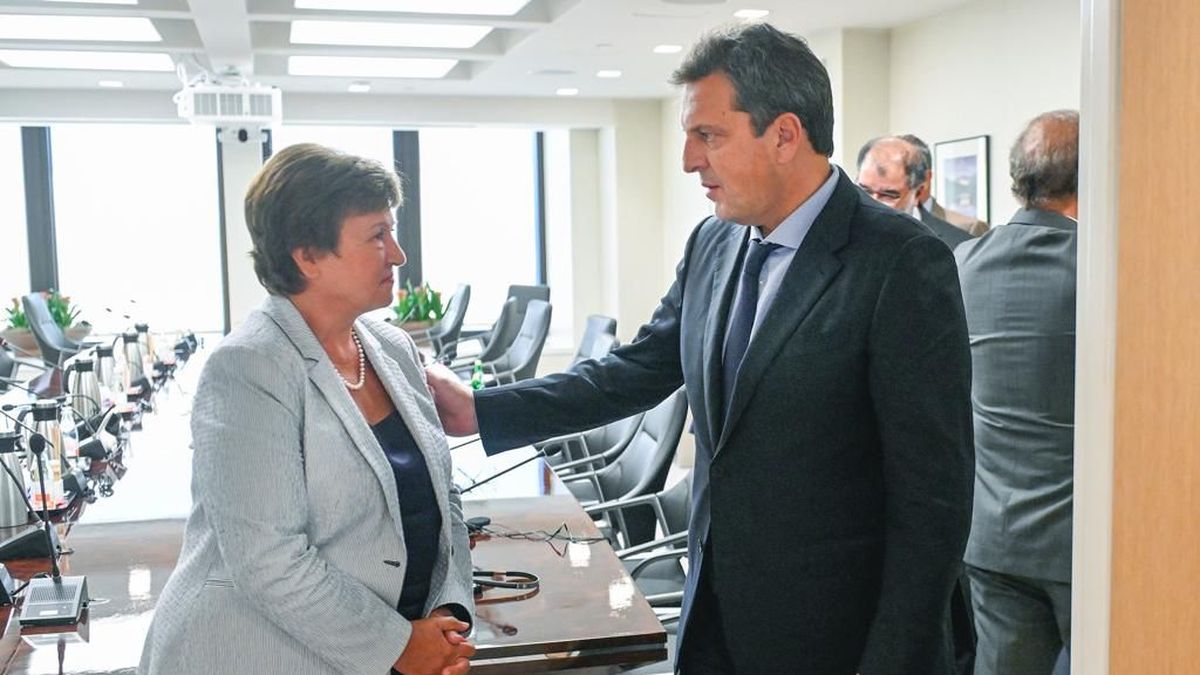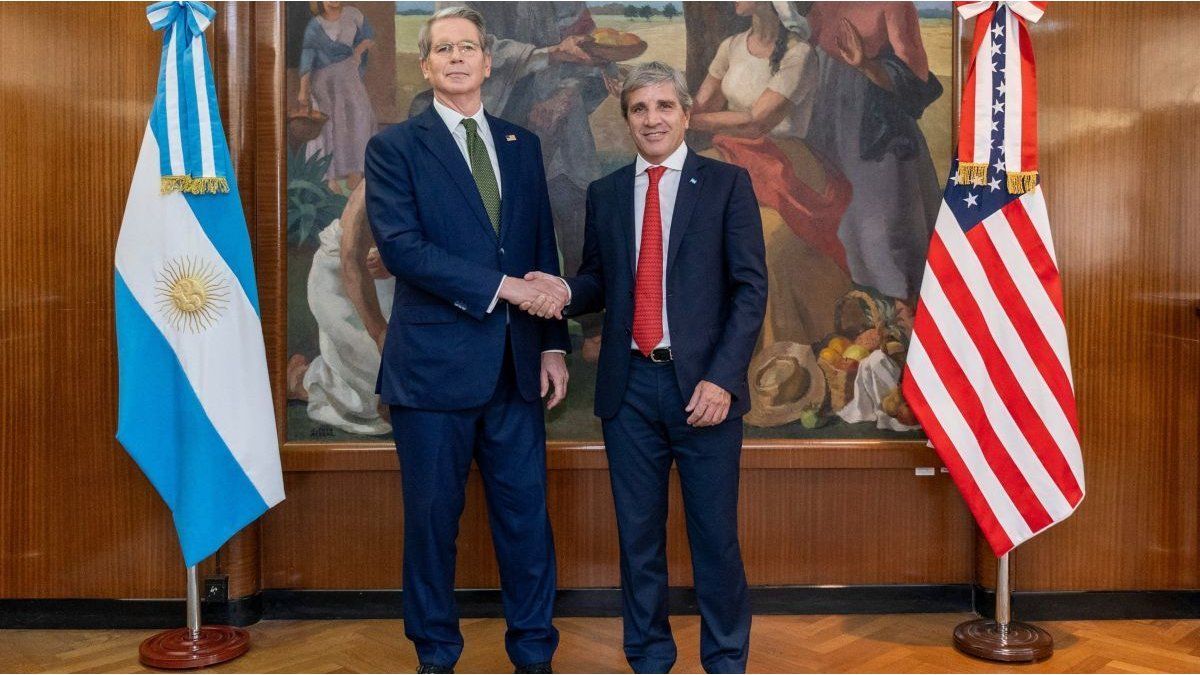“The economic situation remains very challenging and complex, inflation is high, very high and growing, foreign exchange reserves are low and social conditions are fragile,” in this way it was expressed Julie Kozack, IMF spokesperson about the situation in Argentina in his usual press conference.
Regarding the different aid measures that the Government implemented to compensate for the devaluation, the official pointed out that: “The package of policy measures agreed with the (Argentine) authorities in the recent combined fifth and sixth reviews aim to safeguard stability, rebuild reserves, restore fiscal order and also protect the most vulnerable,” also encompassing in his response decisions relating to the implementation of, for example, dollar “Dead cow”.
When asked about the fiscal impact of this aid package, Kozack avoided a direct answer to indicate: “The realignment of the exchange rate with adjusted fiscal and monetary policies are essential components of the program” and added that “The recently adopted measures and announcements add challenges to Argentina.”
Julie Kozack.jpg
However, he admitted that staff are working “to better understand and evaluate the impact of recent measures” and also ““the need for compensatory actions that could be taken to strengthen stability and safeguard program objectives without adding future vulnerabilities,” That is to say, they would ask the government to cut spending to compensate for the higher fiscal spending of the recent measures.
It should be noted that in the last review an increase of 0.4% of GDP was contemplated in “fiscal relief” expenses, but private calculations raise spending to more than 1% of GDP this May.
He insisted that the objective of the IMF is “to help Argentina to safeguard stability and protect the most vulnerable during these challenging times” and expressed the “interest of the Fund and its members to continue working together with Argentina with the greatest political consensus and possible to help ensure stability and shared prosperity for the country.”
Regarding the beginning of the technical meetings to evaluate the progress of the current program, he indicated that it is still “very premature to talk about when the next review will be” and then insisting on “our interest (of the Fund) and its members to remain committed to working closely with Argentina,” Kozack said.
Asked about the dollarization proposed by candidate Javier Mileithe spokesperson pointed out that the determination of the exchange rate “it is a prerogative” of each nation.
He clarified that when they talk to the countries “Our primary concern is to ensure that macroeconomic policies are consistent with an orderly transition between the exchange rate regimes that sovereign authorities decide to adopt; it is also important to ensure the long-term viability of the exchange rate regime that is ultimately chosen.”. In what was interpreted as a message to the Libertad Avanza candidate, he maintained that “Dollarization is not a substitute for the application of sound policies”
These statements by the Fund’s spokesperson are the first to be known after the visit made by the Minister of Economy, Sergio Massa, to Washington last month.
Sorry
It is worth remembering that on July 28, the Argentine authorities and the IMF technical staff reached an agreement at the technical staff level on the fifth and sixth reviews within the framework of the Extended Fund Facility (EFF) agreement. English) 30 months from Argentina. On that occasion, the organization noted that “We value the recent policy actions of the authorities and the commitment to safeguard stability, rebuild reserves and strengthen the fiscal order.”
fmi.jpg

Depositphotos
On August 23, the country received a disbursement of US$7.5 billion after the organization’s Board of Directors approved the 5th and 6th revision of the agreement. This shift was decided despite the fact that “since the completion of the fourth review, the main objectives of the program have not been achieved, as a consequence of the unprecedented drought and policy deviations,” according to the Fund. He also maintained that “in a context of high inflation and growing pressures on the balance of payments, a new package of measures was agreed to focus on strengthening reserves and reinforcing the fiscal order.”
In the statement issued after the approval of the Board of Directors, it is also stated that “the continuous and firm implementation of these measures will be essential in the next period to safeguard stability and strengthen sustainability in the medium term.”
For their part, the Argentine authorities blamed the Fund’s policies for the inflationary acceleration registered last month when the price index reached 12.4%. In this regard, Minister Sergio Massa stated that “”August has been one of the worst months in the economic process of the last 30 years, the product of an imposition by the IMF that in some way hits our economy enormously, which is the imposition of the devaluation plus the PAIS tax as a guarantee mechanism that the Fund intends for its collection, its perception”.
Source: Ambito




